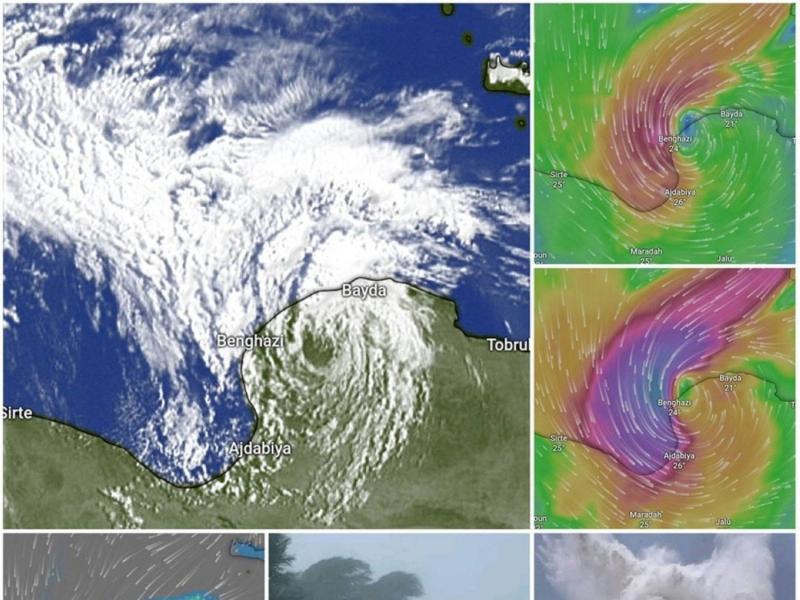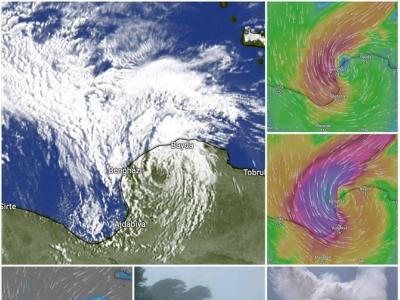The storm Daniel, which caused devastation in the Mediterranean region over the course of a week, claimed the lives of 15 people in central Greece after causing record levels of rainfall, before sweeping into Libya where more than 2,500 people died in a devastating flood. As the storm moved along the North African coast, Egyptian authorities sought to reassure their concerned citizens by telling them that it had finally weakened. The newspaper "Al-Ahram" in its English online edition wrote, "No need to panic!"
However, global warming means the region may have to prepare for increasingly powerful storms of this type in the future, which are equivalent to what is known as a Mediterranean hurricane (Medicane). Suzanne Gray from the Department of Meteorology at the University of Reading in the UK reported on a document from the Intergovernmental Panel on Climate Change stating, "There is strong evidence that the frequency of Medicanes is decreasing under global warming, but their intensity is increasing."
The storm that formed on September 4 reached Greece following a period of increased temperatures and wildfires. In Libya, the torrents resulting from the fierce storm, which poured down from the hills onto a usually dry valley, led to the collapse of two dams and engulfed a quarter of the city of Derna in the east of the country. The International Federation of Red Cross and Red Crescent Societies expressed fears of losing at least 10,000 people.
Climate expert Christos Zerefos, Secretary-General of the Academy of Athens, stated that storm data has not yet been fully collected, but he estimated that rainfall levels in Libya reached one meter, which is equivalent to what fell on Thessaly in central Greece over two days. He added that this was an "unprecedented event" and that the amount of rainfall that flooded the area was the highest ever recorded since data collection began in the mid-19th century. He said, "We expect to see such phenomena recurring frequently."
However, other experts indicated that the impact on surrounding Mediterranean countries would be uneven and more devastating for those lacking storm preparedness. Libya is particularly at risk after suffering from chaos and conflict for over ten years and the absence of a central government that can access all parts of the country. Leslie Mabon, a lecturer in environmental systems at the Open University in the UK, stated, "The complex political situation and prolonged history of conflict in Libya pose challenges for developing risk communication strategies, risk assessments, coordinating rescue operations, and possibly maintaining critical infrastructure such as dams."
Abdul Wnis Ashour, a water science expert from Omar Al-Mukhtar University in Libya, warned before storm Daniel's arrival that the recurring floods of this valley pose a threat to Derna. However, even Greece, which has better resources, faced difficult conditions in coping with the force of storm Daniel that swept away homes, caused bridge collapses, destroyed roads, knocked down power lines, and ruined crops in the fertile Thessaly plain. Greek authorities announced on Monday that they had evacuated more than 4,250 people from villages and residential areas in the region.




